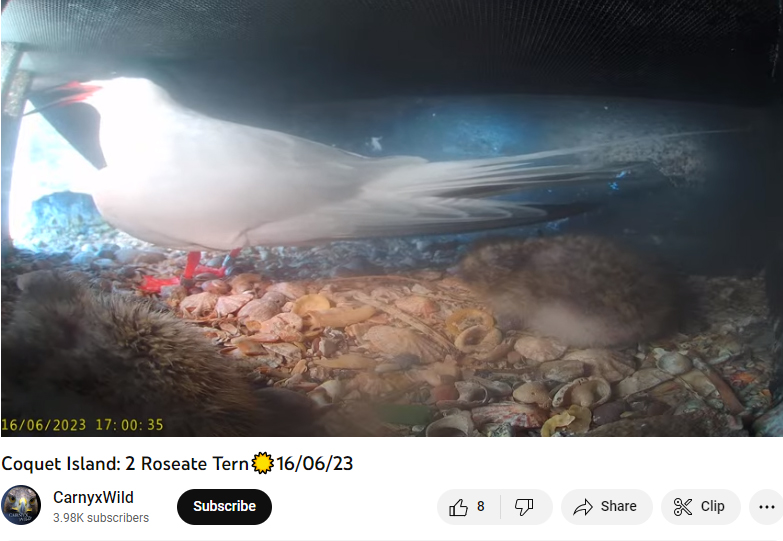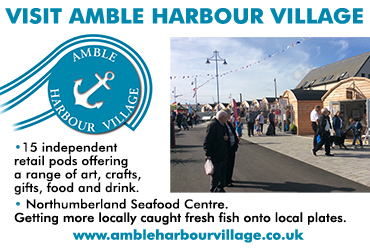Coquet Island rare birds devastated again by Avian Flu
Regular walkers on our beaches will be in no doubt that Avian Flu once again devastated our shorebirds. Some of these birds are already suffering from species decline, and conservationists are becoming increasingly worried for the future of our wildlife.

A Roseate Tern and chick filmed on the nest camera on Coquet Island
We asked Stephen Westerberg, RSPB senior site manager for Coquet Island for an update on the situation on the island.
How badly has Coquet Island fared this year with Avian Flu?
Several species were affected with Avian Flu this year, some more than others, however, all species fledged young. The Black-headed Gulls fared worse with only a handful of chicks fledging from the 5500 pairs nesting and dead Roseate Terns were tested for Avian Flu and were positive.
What are the latest numbers for the species affected?
Last year there were 154 Roseate Tern nests, 1.68 eggs per nest and productivity of 0.48. The Roseate figures for this year are 118 nests, 1.45 eggs per nest and a maximum productivity of 0.5. This last figure however should be treated with caution, as we could not search the shoreline for corpses during the breeding season due to HPAI (Highly Pathogenic Avian Influenza). If we had done that then we may have found chicks that had wandered down to the shoreline and died, reducing the productivity figure.
I gather you’re not on the island much; that must be very difficult in terms of monitoring/protecting etc?
We visited the island about once a week this year, balancing the need to keep staff safe and continue our vital conservation work. On our visits we concentrated on monitoring the Roseate Terns as they are our most important species, Coquet Island being the only site in the country where they nest. With our online cameras, we were also able to monitor the island 24 hours a day.
What will happen in terms of getting the island ready for next year or are you having to leave everything to go wild?
We are testing the island for the presence of HPAI, and it is not currently known how long the virus will survive in the various environments.
Testing will give us vital information on what level of protective equipment (PPE) we need. Whatever the results, staff, wearing the correct PPE will carry out the usual habitat management and conservation work on the island to ensure it is ready for the breeding seabirds arriving next year.
Some context on Avian Flu from the RSPB
Avian Influenza is devastating UK and global wild bird populations, exacerbating ongoing nature declines across the world. Wild birds are victims and not just vectors of this disease. This is yet another human-made problem with the current highly pathogenic strain having originated in intensive poultry operations in Asia.
We urgently need targeted species conservation actions to build resilience in the most vulnerable populations.
The virus is unpredictable, and we need long-term monitoring, research and response plans to tackle its impact.
Whilst the risk to human health is low, and Coquet Island is not open to the public, we advise people not to touch any visibly sick or dead birds and encourage everyone to continue reporting dead wild birds to Defra for testing (Report dead wild birds – GOV.UK (www.gov.uk).
If you know the species, please also report dead wild birds on BirdTrack to help assess population impacts (BirdTrack | BTO – British Trust for Ornithology).












